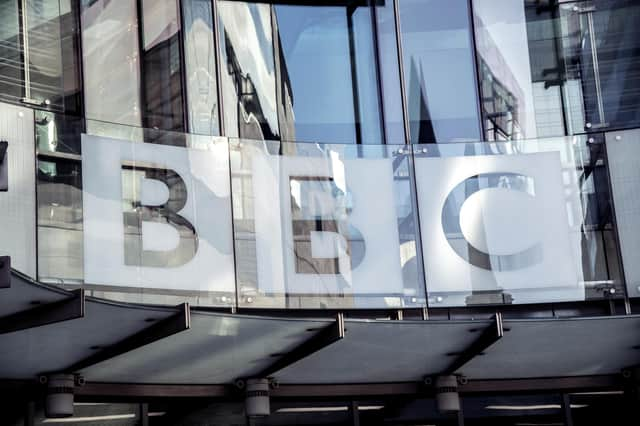BBC local radio cuts 'could harm more than 1,000 people registered visually impaired in Barnet'


Cuts to local radio services have been a travesty to visually impaired people, a national campaign group has warned.
It comes as the number of blind and partially blind people registered in Barnet has been revealed, with the Royal National Institute of Blind People warning the true number could be even higher.
Advertisement
Hide AdAdvertisement
Hide AdLatest NHS Digital figures, which are only released every three years, show around 1,095 people in Barnet were registered visually impaired as of March.
This included approximately 605 people who were completely or severely blind, and a further 490 who were partially impaired.
All figures are rounded to the nearest five.
Across England, around 270,000 people were registered as visually impaired as of March – of which 130,000 were severely or fully impaired.
Of these, 10,500 were children, with around 1,595 based in London.
Advertisement
Hide AdAdvertisement
Hide AdSarah Gayton, street access campaign coordinator for the National Federation of the Blind UK, said the BBC's recent cuts to local radio services hit visually impaired people harder, as they rely on the radio for information, entertainment and companionship.
Ofcom licensing guidance says BBC local radio stations must provide a certain number of hours of original content each year.
But the corporation has sought to make savings in the face of high inflation and a licence fee freeze, including plans for local radio stations to share more content and transmit fewer programmes unique to their areas.
Ms Gayton said: "We are not going away, and all needs need to be taken into account. Ofcom, the BBC and the Government are not listening, and the way blind and visually impaired people are being treated is abhorrent.
Advertisement
Hide AdAdvertisement
Hide Ad"We feel we have been left behind, and are not being listened to. It is down to the BBC and the Government to provide people with blind and visual impairments with local radio."
A BBC spokesperson said: "We are fully compliant with our Ofcom-set operating licence requirements and will report on our compliance in July, alongside our annual report."
A Department for Culture, Media and Sport spokesperson said: "We remain disappointed at the BBC's decision to reduce parts of its local output and ministers have met with BBC bosses to express concerns about these plans.
"The BBC must continue providing distinctive and genuinely local services that reflect and represent local communities. Ofcom will ensure the BBC is held to account in delivering these duties."
Advertisement
Hide AdAdvertisement
Hide AdSome 20,300 people across England registered as visually impaired last year, of which 9,700 were severely or completely blind.
In Barnet, there were around 85 new registrations.
Vivienne Francis, chief social change officer at the RNIB, said the organisation was surprised to see a decrease in the number of new registrations, and expects "the number of people impacted by sight loss is due to increase dramatically by 2050" due to an increase in risk factors, such as low income and ageing.
Ms Francis said the decrease "points towards there being significant problems in the system whereby people are not routinely being registered".